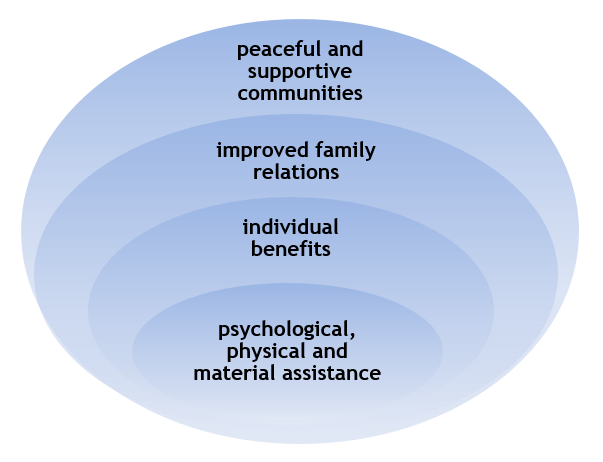The impact of our programmes
In December 2017, the TFV assistance programme in DRC closed its first programme cycle that started in 2008 with a total number of 58,439 direct beneficiaries supported across Ituri and South and North Kivu. In Uganda a second phase of programme was ongoing with a total of 43,284 beneficiaries; as of December 2017, a total of 101,723 direct beneficiaries were supported in both countries. In 2018, the assistance programme continued in Uganda. The total number of direct beneficiaries in 2018 was 6006.
From April 2019 the TFV started a third cycle of the assistance programme in Uganda, which by December 2019, reached 5,257 direct beneficiaries. This programme continued into 2020 and by September 2020 assisted a total of 3,173 direct beneficiaries.
The TFV addresses the physical, psychological and material harm these victims suffered, for instance, with reconstructive surgery, prosthetic limbs, trauma-based counselling, educational support, income-generating activities, and conflict mediation and reconciliation.
Rehabilitation is a complex, ongoing, process and the Trust Fund’s contribution to it is difficult to measure. A holistic and multi-level perspective is warranted to understand the Trust Fund’s contribution, taking into account the effects of the TFV’s work at the individual, family and community level.
From the monitoring information collected by the Implementing Partners, important results can, nevertheless, be distilled to illustrate the Trust Fund’s results and show intermediate outcomes that include the victims’ satisfaction with the reparative measures and the victims’ contributions to peaceful harmony and stability within their communities.
Through direct beneficiaries, the TFV reaches victims’ families and their communities. As stories of our beneficiaries show, the progress on individual level often translates into positive effects on their surroundings. Beneficiaries report improved self-esteem, restored sense of hope, improved family relations, increased income, decreased stigma and sense of belonging to supportive communities.
